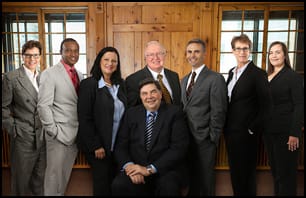You and the Law: I Know the World is Flat – My Client Told Me So
“It’s believing what your clients tell you – taking them at their word – and then immediately acting on that information. While trust and belief is an important element in the attorney-client relationship, the surest way to get both ourselves and our clients in trouble is to just toss common sense out the window, and march off to battle, without asking the client a lot of questions,” employment law specialist Sheila Engelmeier firmly maintains.
Minneapolis-based Engelmeier lectures and has written extensively on “this trap which two classes of lawyers often don’t see. The first are inexperienced attorneys who have not had the opportunity to learn that things often are not as their clients remember or thought they were. The other group are extremely successful lawyers whose very success makes them feel immune.”
Tell me everything the other side would want to know
There is an old saying that law students hear when studying evidence: In court, truth is what the judge or jury decides it is. It isn’t what your client thinks happened that is key; rather, what information can your client give you which proves their case?
“Your lawyer will of course ask questions leading to information which helps to prove case. But what’s even more important is to ask possibly embarrassing questions that reveal details the other side would want to know to disprove the case or discredit your witnesses,” she points out.
“Lawyers have a legal duty to investigate the factual basis of any suit they are considering filing. Both the attorney and client can be penalized if a thorough investigation has not been conducted, and if a lawsuit was filed without proper merit or justification. So, like a journalist, a good lawyer should ask: who, what, where, when, why and then will insist on knowing how you can prove it,” she stressed.
“Your lawyer must know about weaknesses in the facts of the case, and especially about things in the past – things about you and possibly your family – which could hurt your credibility. You want a lawyer who asks probing questions which might intrude into touchy areas and help you truthfully develop the best possible answers for challenging questions.
“This can be embarrassing, but in discussing skeletons in your own closet, you can trust that the information will remain confidential. Remember, your lawyer’s job is to help others to see you in your best light, and this requires understanding your flaws. If, for example, I have a client who left out something important on an employment application – or lied about an important detail – I need to know that upfront. Then, we can make our best effort to explain the situation.”
Why some lawyers don’t ask the tough questions
“Have you found that many lawyers shy away from asking the tough questions?” we asked.
“Yes, and in three recurring situations,” Engelmeier replied.
“Where your client is an employee, and feeling mistreated, there is a natural tendency to not want to further upset them by asking what they ‘might’ have done ‘wrong.’ This is a dangerous trap, because sometimes they have partially contributed to their own unfortunate circumstance.
“Next, where the lawyer is representing the employer, often it is a long-standing relationship. Client and attorney may have become friends, and so questioning the employer may be very uncomfortable for the lawyer to do.
“Finally, if it is a new relationship – a new client – it is always difficult to appear to challenge a decision maker. But this is an easy challenge to overcome, and I just say, that for me to be totally on your side, I need to understand the entire picture, what we did well and where we fell short. Mistakes can be explained, but only if they are acknowledged.”
Realistically look at the facts
Lawsuits are unbelievably expensive and time-intensive. Up to the eve of trial, it is estimated nationally that in a typical employment case, each side will have spent close to $200,000.
“When you look at that expense, then think of the stress, and the emotional price tag, there is one question that you never want to ask after losing,” Engelmeier cautions. “Why didn’t we realistically look at the situation and prepare to deal with both the good and the not-so-good facts? Why didn’t we ask ourselves the hard questions before the other side did?”
Dennis Beaver practices law in Bakersfield and welcomes comments and questions from readers, which may be faxed to (661) 323-7993 or emailed to [email protected].

